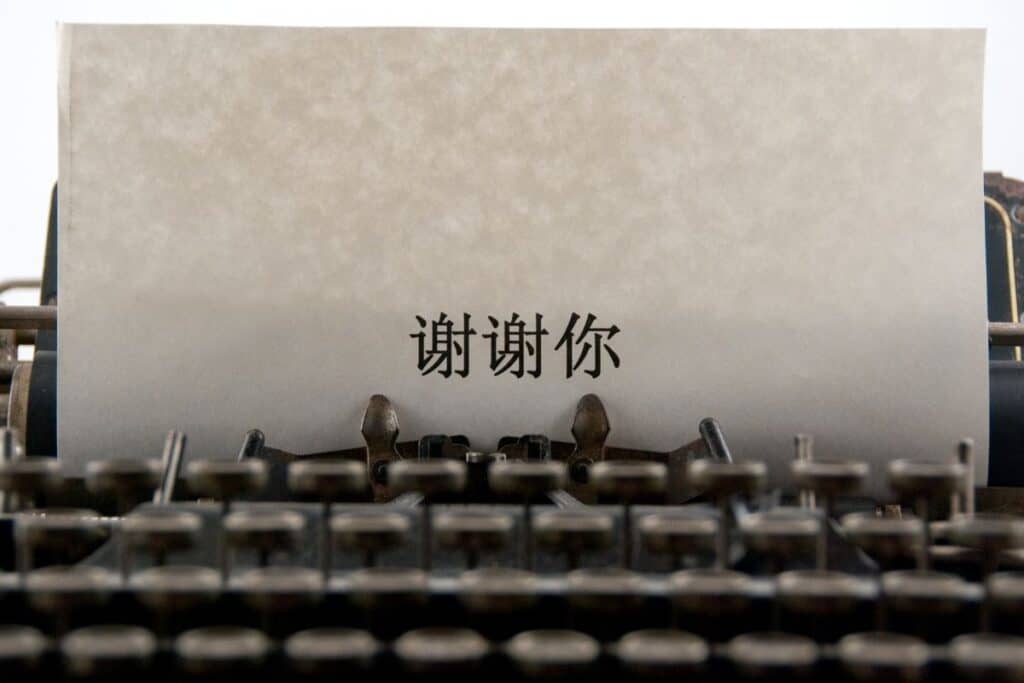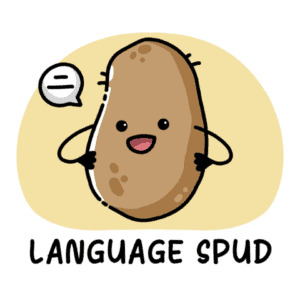
When one sets their sights on learning a new language, ‘Thank you’ is usually one of the first expressions you’ll learn.
But what if I told you that saying ‘thank you’ is not the only way of expressing politeness and gratitude in Mandarin Chinese?
Given the many ways you can express thanks in Chinese, it’s a great opportunity to show how refined and superior you are… until you realise manners don’t really exist here, then you’ll feel like you’ve wasted your breath.
But as my mother would say, ‘Kindness costs nothing!’
谢谢 (Xièxie)
This is the most common way to say ‘thank you’ in Chinese. Even though it might look and sound like the same word repeated twice, there is a very subtle difference here. The difference comes from the first syllable, which is the fourth tone, while the second is neutral.
And as if its pronunciation wasn’t easy enough, the other great thing about the word ‘xiè xie’ is that it can be used as the basic formula for many variations of ‘thank you’. Here are some of the best variations of thank you in Chinese with this phrase:
谢了 (xiè le) – thanks (most commonly used between close friends)
谢谢你 (xiè xiè nǐ) – thank you (a more formal way of saying thank you)
谢谢您 (xiè xiè nín) – a more formal and courteous/suitable ‘thank you’ for when you are talking to a person that’s hierarchically higher than you)
多谢 (duō xiè) – thanks a lot (used a lot by the teenagers and mainly in texts between friends)
非常感谢 (Fēicháng gǎnxiè) – ‘Extremely thanks’ (a way to express loads and loads of gratitude)
Thank you for ____
If you want to say thank you for something specific (information that was provided to you, a gift that you received, etc.) there are many ways you can do that, too.
| English | Chinese | Pinyin |
| Thank you for your coffee | 谢谢你的咖啡 | Xièxiè nǐ de kāfēi |
| Thank you for your help | 谢谢你的帮助 | Xièxiè nǐ de bāngzhù |
| Thank you for your concern | 谢谢你的关心 | Xièxiè nǐ de guānxīn |
| Thank you for coming | 谢谢你的到来 | Xièxiè nǐ de dàolái |
| Thank you for the gift | 谢谢你的礼物 | Xièxiè nǐ de lǐwù |
| Thank you for letting me know | 谢谢你让我知道 | Xièxiè nǐ ràng wǒ zhīdào |
‘Big’ Thanks
Use the expressions below if you’re really grateful.
| Thank you so much | 太谢谢你了 | tài xiè xiè nǐ le |
| Thanks so much | 非常感谢 | fēi cháng gǎn xiè |
| Thank you so much | 非常感谢你 | Fēicháng gǎnxiè nǐ |
| A shorter version of ‘Thank you so much.’ | 感谢 | gǎn xiè |
Other Versions of ‘Thank You’
There are quite a few other ways to express gratitude in Chinese, but many of them aren’t used that often. The following examples definitely make sense, but they might sound a bit weird for a couple of reasons:
- Chinese people love downplaying stuff and projecting an air of modesty and humbleness. Being overly complimentary and polite in Chinese is just kind of weird. To be fair, it is in most cultures, but if you do that stuff here it’ll be like nails on a chalkboard.
- Keep in mind that sarcasm exists in Chinese, too. I mean, they’re not as good at it as the British, but it’s still here. Be wary of this… but if you want to practice sarcasm, go for it. It’s so much fun! Say the below phrases harshly or with a straight face if some punk is ruining your day.
| To be grateful/to appreciate | 感激 | Gǎnjī |
| To be grateful | 感恩 | Gǎn’ēn |
| You’ve worked hard | 你辛苦了 | Nǐ xīnkǔle |
| I’ve inconvenienced you | 麻烦你了 | Máfan nǐle |
| I owe you one | 欠你一个人情 | Qiàn nǐ yīgè rénqíng |
| You really helped me out | 你真的帮了我个大忙 | Nǐ zhēn de bāngle wǒ gè dàmáng |
| You are such a good person | 你真是个大好人 | Nǐ zhēnshi gè dàhǎo rén |
| I really don’t know how to thank you | 真不知道怎么谢你 | Zhēn bù zhīdào zěnme xiè nǐ |
| What would I do without you? | 没有你, 我该怎么办? | Méiyǒu nǐ, wǒ gāi zěnme bàn |
| I can’t live without you | 没有你我活不下去 | Méiyǒu nǐ wǒ huó bù xiàqù |
How to Say ‘You’re Welcome’
The two most common ways to say ‘You’re welcome’ in Chinese are:
- 不客气 (Bù kèqì) – literally meaning ‘No polite’.
- 别客气 (Bié kèqì) – literarally meaning ‘Don’t polite’.
However, there are a number of other ways to express this sentiment in Mandarin Chinese, so let’s take a look.
| English | Chinese | Pinyin |
| No trouble | 不麻烦 | Bù máfan |
| Don’t mention it/’I don’t need your thanks’ | 不用谢 | Bùyòng xiè |
| Don’t mention it | 别提了 | Biétíle |
| Don’t be polite | 不要客气 | Bùyào kèqì |
| No worries | 不用担心 | Bùyòng dānxīn |
| No worries/No matter | 没事儿 | Méishì er |
| No big deal | 没什么大不了的 | Méishénme dàbùliǎo de |
| No problem | 没问题 | Méi wèntí |
| It’s my honour | 这是我的荣幸 | Zhè shì wǒ de róngxìng |
Where? Where?
Do you know how I said earlier that the Chinese like to be humble in the face of compliments?
A great phrase to remember is…
哪里, 哪里? (Nǎlǐ, nǎlǐ?)
This translates to, ‘Where? Where?’
Saying this is basically brushing off a compliment.
For example, if someone says you’re the most handsome man in the world, you can act all cool and say ‘Where? Where?’ whilst punching the air in your mind.
Further Reading
- 100+ MANDARIN LEARNING RESOURCES: THE FASTEST WAY TO FLUENCY
- LEARNING CHINESE: 15+ LISTENING TOOLS PERFECT FOR BEGINNERS
- THE ULTIMATE GUIDE TO LEARNING CHINESE IN CHINA
- THE 24 BEST MANDARIN STUDY RESOURCES FOR BEGINNERS
- 14 REASONS WHY YOU SHOULD LEARN MANDARIN CHINESE
- IS IT EASY TO LEARN MANDARIN CHINESE?
- THE 21 BEST APPS TO LEARN CHINESE
- STUDYING MANDARIN AT A UNIVERSITY IN CHINA: WHAT YOU NEED TO KNOW
